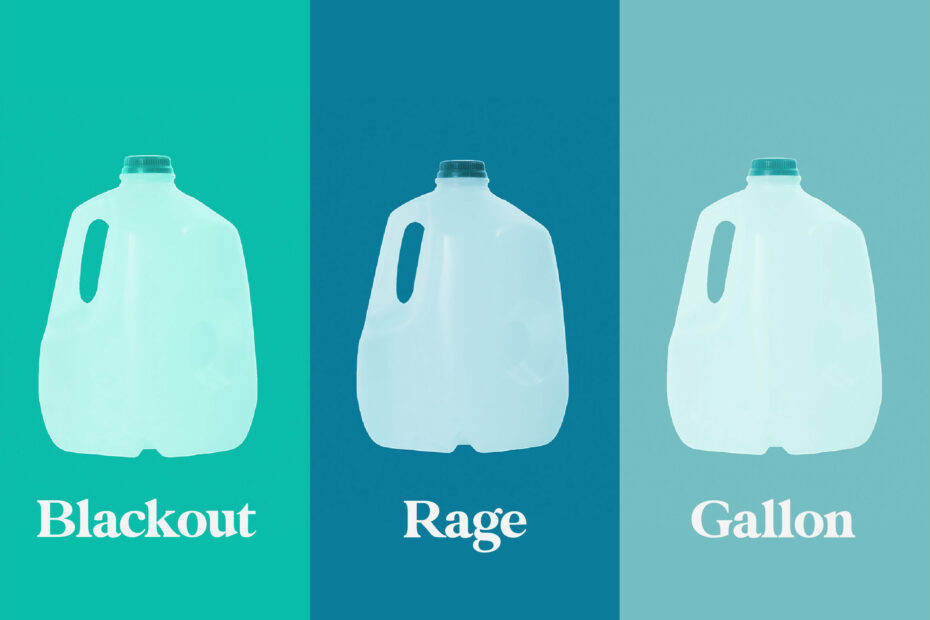BORG drinking is going viral on TikTok and is becoming increasingly popular on college campuses. This intensified form of binge drinking is an acronym for “blackout rage gallon.” The gallon drink is a mixture of water, alcohol, sweet flavorings, and some hangover remedy, such as Liquid I.V. or Pedialyte. Instead of drinking out of cups, these young individuals are drinking out of gallon water jugs in an attempt to drink a larger amount and not feel terribly hungover the next day.
The University of Massachusetts Amherst announced on March 4, 2023, that “a significant number of alcohol intoxication cases” had resulted in the Amherst Fire Department (AFD) handling requests for 28 ambulance transports. CBS News reported that a whopping 46 students were hospitalized, but thankfully they were “eventually medically cleared and discharged” with injuries that were deemed not to be life-threatening.
Deadly trend goes viral
BORG drinking is a dangerous type of binge drinking, and because it is a social media trend, it has the potential to reach millions of individuals and increase in popularity. BORGS made its TikTok debut in 2020 and have since continued to add trending videos. It is unclear how many young individuals engage in this trending drinking behavior, how much alcohol is actually put in the gallon jug, or how much of this concoction they actually consume at once. However, heavy drinking can increase the risk of injuries, poor decisions, emergency room visits, and death. Heavy alcohol consumption increases the risk of sexual assaults, physical altercations, car accidents, and blackouts, regardless if the individual is binge drinking beer or consuming a BORG. In addition, BORG drinking can increase the risk of alcohol poisoning, a medical emergency.
Alcohol poisoning
Alcohol poisoning occurs when an individual consumes a large enough amount of alcohol, usually in a short period, resulting in such a high blood alcohol level that it becomes toxic to their body. The effects of alcohol poisoning can occur over time, even after an individual stops drinking. This is because the blood alcohol concentration (bac) can continue to rise for 30-40 minutes, worsening symptoms of alcohol poisoning. Alcohol poisoning can be lethal, with the individual progressing into a coma if medical attention is not provided in a timely manner.
Signs and symptoms of alcohol poisoning
- Confusion or disorientation
- Irregular pulse
- Depressed breathing
- Seizure
- Loss of bowel or bladder control
- Blue-tinged skin around the lips or extremities
- Cold/clammy skin
- Hypothermia
- Vomiting
- Inability to maintain consciousness
- Lack of physical coordination, such as the inability to walk
Binge drinking and alcohol poisoning
One may assume that alcohol poisoning is a problem for younger individuals who don’t “know their limits” or haven’t learned how to “handle their liquor.” However, these are major false pretenses. Binge drinking is reported more frequently in young people, but alcohol poisoning is more likely to affect those well past their college years. Seventy-five percent of alcohol poisoning deaths are among adults ages 35 to 64, according to the CDC. Most of them are white men. However, binge drinking is tightly tied to alcohol poisoning, as alcohol poisoning usually occurs when an individual consumes a large amount of alcohol in a short period. The National Institute on Alcohol Abuse and Alcoholism defines binge drinking as a pattern of drinking that brings an individual’s blood alcohol concentration (BAC) to at least 0.08 grams percent. This typically happens when men consume five or more drinks and when women consume four or more drinks in approximately two hours.
- One in six U.S. adults binge drinks about four times a month, consuming about eight drinks per binge.
- Binge drinking is more common among those with household incomes of $75,000 or more than those with lower incomes.
- While binge drinking is more common among young adults aged 18–34 years, binge drinkers aged 65 years and older report binge drinking more often, an average of five to six times a month.
- Although college students commonly binge drink, 70% of binge drinking episodes involve adults aged 26 years and older.
- The prevalence of binge drinking among men is twice the prevalence among women.
- Binge drinkers are 14 times more likely to report alcohol-impaired driving than non-binge drinkers.
- About 90% of the alcohol consumed by youth under the age of 21 in the United States is in the form of binge drinks.
- More than half of the alcohol consumed by adults in the United States is in the form of binge drinks.
- Approximately 92% of U.S. adults who drink report binge drinking excessively in the past 30 days.
Treating alcohol poisoning
If an individual is thought to have alcohol poisoning, call 911 immediately, as medical intervention is necessary. Before the ambulance arrives, the following assistance should be given:
- Try to keep the individual awake.
- Try to keep them in a sitting position, not lying down. If they do lie down, turn their head to the side so if they do vomit, they will not choke.
- If they can take it, give them water
- If the person is unconscious, put them in the recovery position (on their side) and check they are breathing
- Do not give them coffee; caffeine will worsen dehydration.
- Do not place them on their back.
- Do not give them any more alcohol to drink.
- Do not make them walk.




